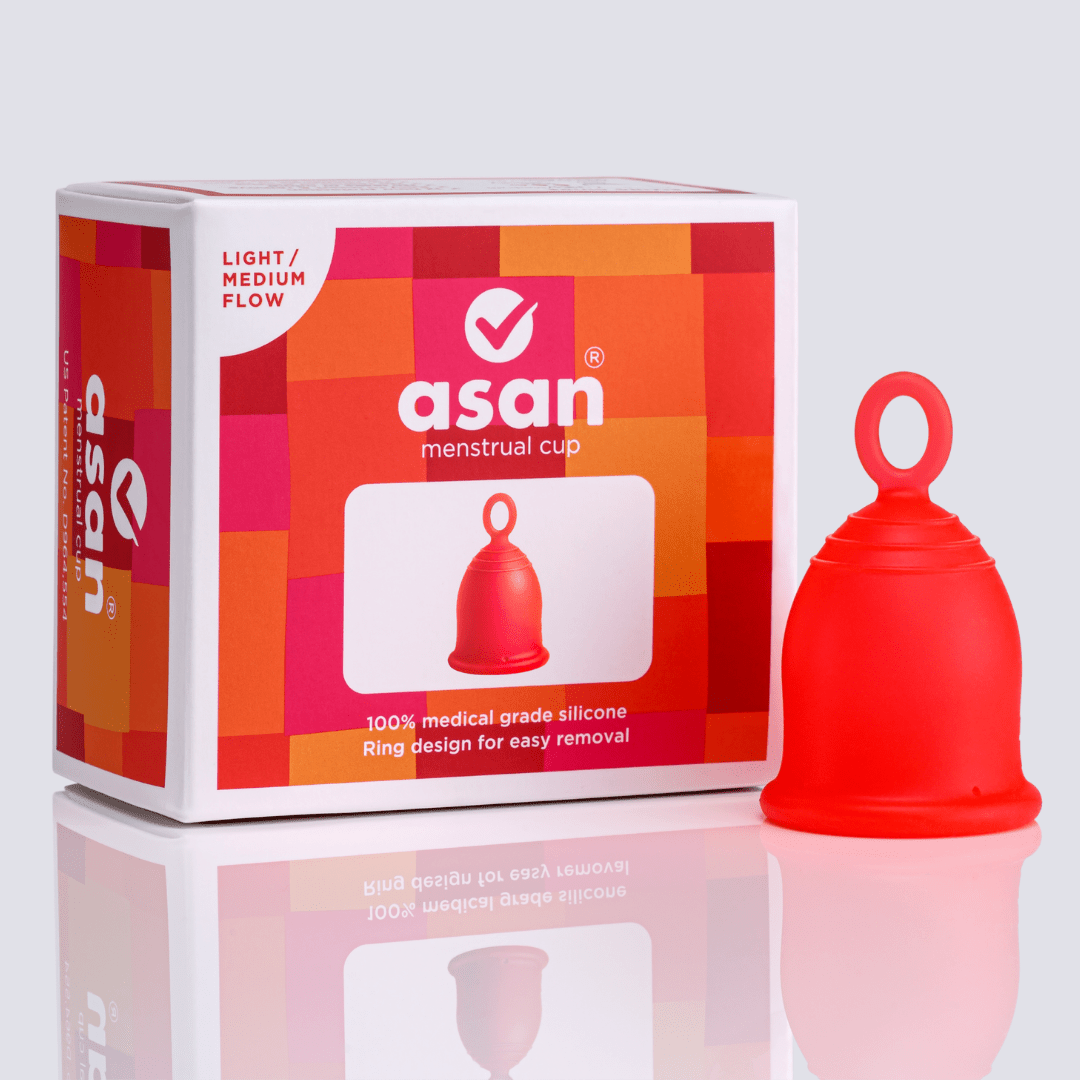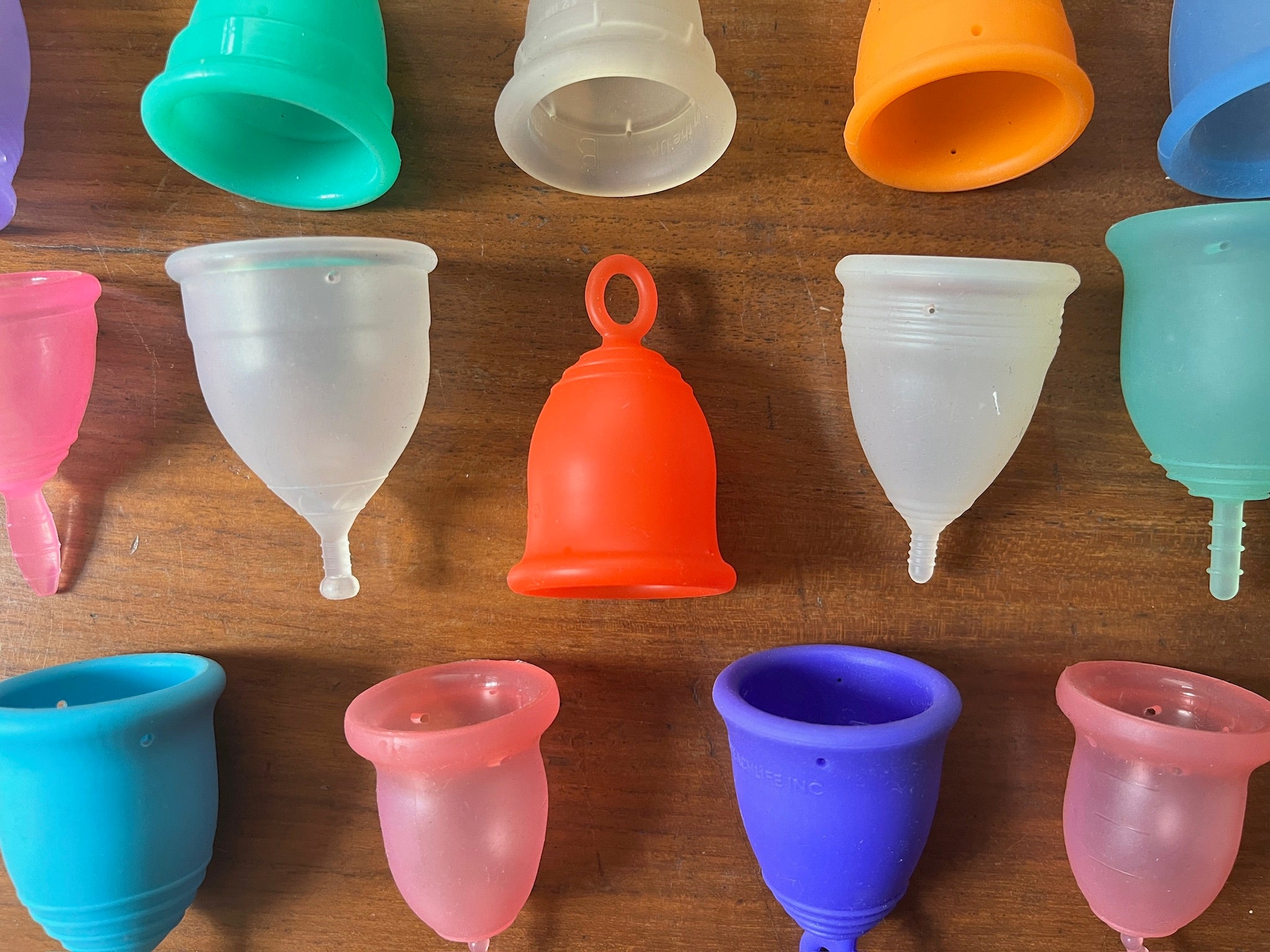
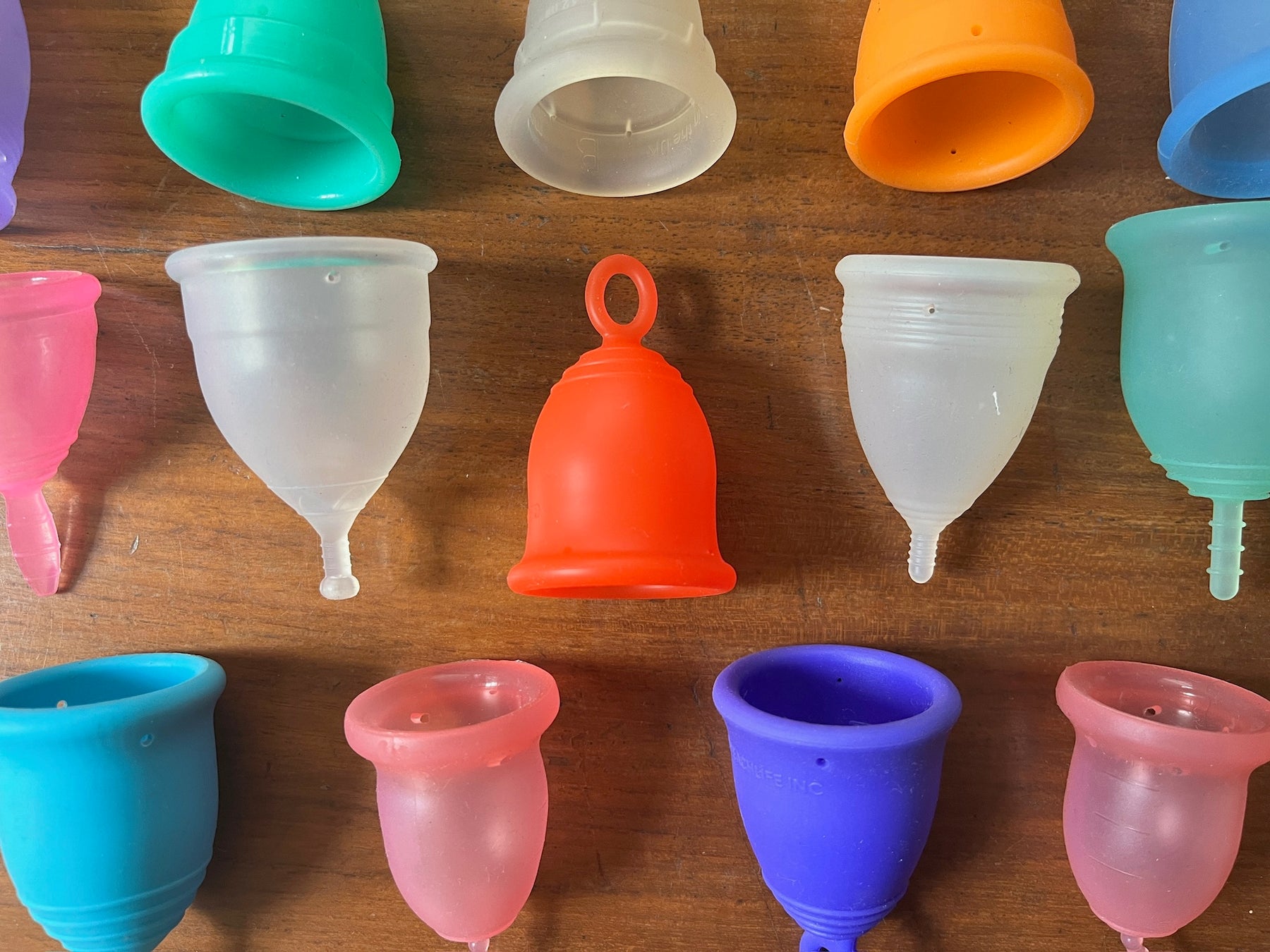
Is your menstrual cup giving off a funky smell? If the answer is yes, you’ve come to the right place!
Menstrual cups are gaining huge popularity globally as a sustainable and more comfortable alternative to pads and tampons. As many high quality menstrual cups are made with medical grade VI silicone, they are not prone to storing your period odour.
However, sometimes, you might notice an unpleasant menstrual cup smell - and that’s also completely normal! The good news? It’s easy to fix, so read on to learn about how to get rid of menstrual cup odour.
What causes period odour?
Period odour happens when menstrual blood is exposed to air and starts to oxidise, which can create a metallic or musty smell.
Keeping good hygiene, changing pads or tampons regularly, or using a menstrual cup can help minimise odour and keep you feeling fresh.
What can cause a menstrual cup to have an odour?
There are a few reasons why your period cup might develop an odour:
- The seal is not fully created: This can allow air to seep into your cup and oxidise your period flow.
2. Your cup is sticking out: While it is completely normal to have the ring and base of your cup sticking outside your vaginal canal, this can cause some period blood to oxidise and develop an odour within a few hours.
3. Not cleaning it properly: Residue from blood, soap, or hard water can build up to cause an unpleasant smell.
4. Leaving it in for too long: It’s best to empty and rinse your cup every 8-12 hours.
5. PH imbalance: Changes in your vaginal pH can sometimes cause smells.
6. Using the wrong soap: Harsh cleansers can damage the silicone and trap odours.
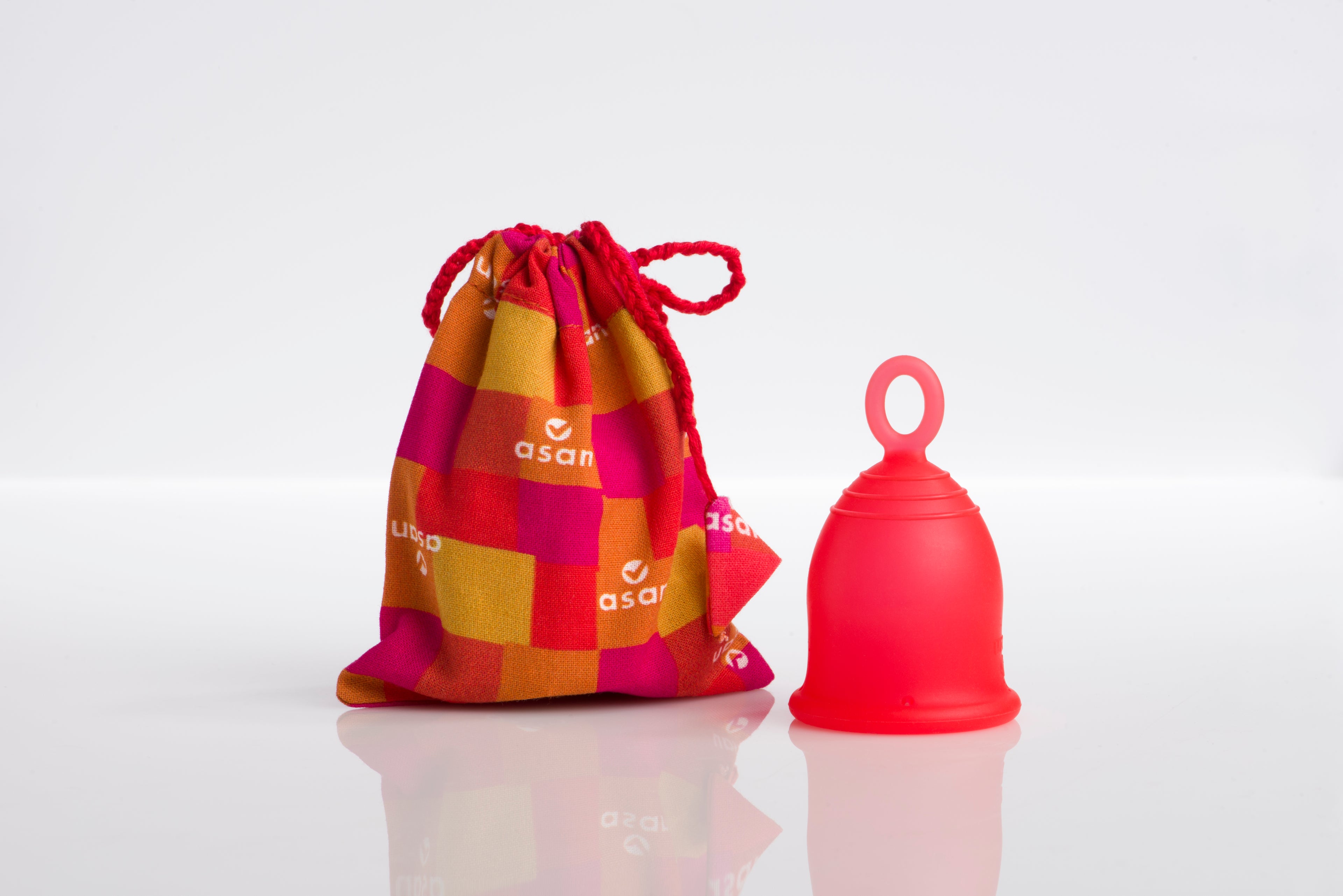
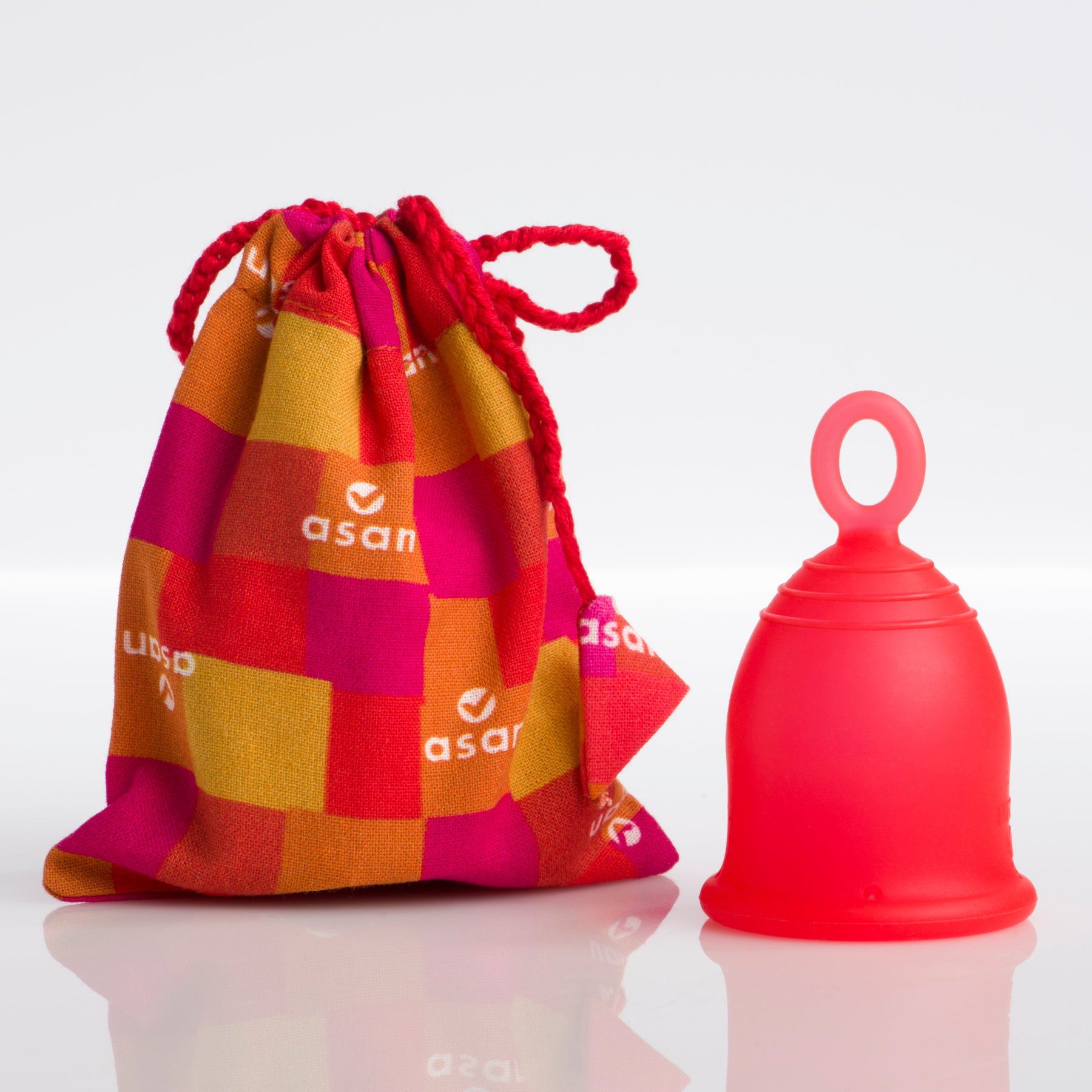
How can I prevent menstrual cup odour?
The best way to prevent menstrual cup smell is to ensure you are using and cleaning your cup correctly. Here are a few simple tips to keep it fresh:
- Make sure your cup is inserted properly and the seal is created
A good seal prevents leaks and stops menstrual fluid from being exposed to air, which can lead to odour. After inserting, gently tug the stem to check if the cup has created a suction with your vaginal walls.
2. Keep your cup clean
Some tried-and-tested menstrual cup hygiene practices to make sure your cup is clean includes rinsing your cup with tap water properly after each use. Then, wash it with a mild, natural menstrual cup cleanser that is formulated for medical-grade silicone.
Also remember to boil your cup before and after each period for 5-10 minutes to sanitize your menstrual cup safely. This removes any bacteria and odours without damaging the material.
Top tip: To ensure there is no period residue in the airholes, fill the cup with water and squeeze it using the palm of your hand.
Learn more about sterilising your menstrual cup in this blog.
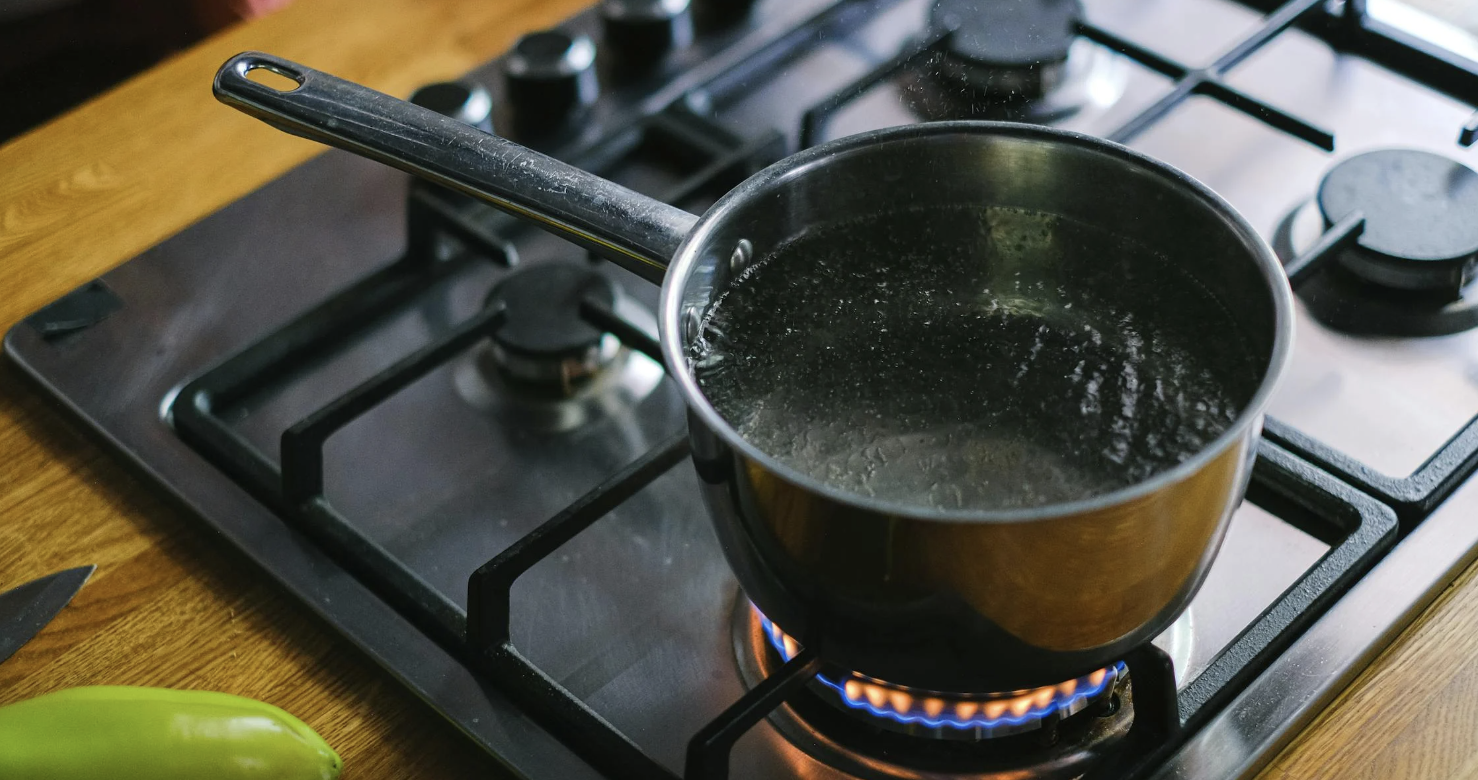
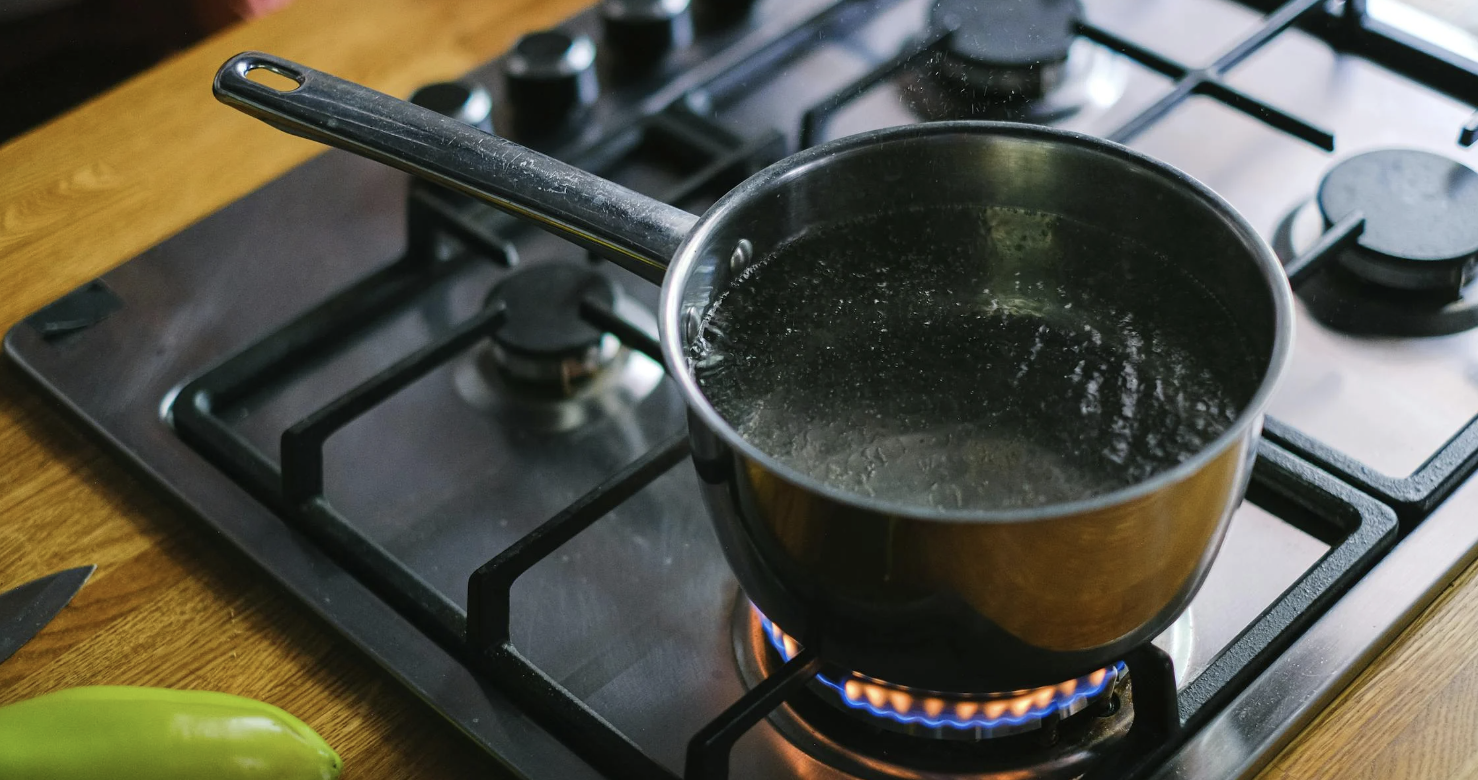
3. Store your cup correctly
Never store your cup in an airtight container. Use a breathable cotton pouch to maintain a fresh smelling menstrual cup and prevent any bacterial growth.
My cup has developed a smell. How can I get rid of the odour?
Meet the Asan OneDrop Cleanser, the best way to keep your cup fresh.
Most soaps contain chemicals that can harm the cup’s silicone, your body, and build up odour over time.
That’s why we created the Asan OneDrop Cleanser, a natural menstrual cup cleanser designed specifically for menstrual cups.
With just one drop, this highly concentrated formula removes 99% of bacteria, keeping your cup shiny and odour-free. It’s:
- 100% safety-tested and free from artificial fragrances
- Made with lavender extract for a gentle clean
- Perfume-free, so it won’t disrupt your vaginal pH
- Highly concentrated and designed to last longer
So, if you’re looking for an easy way to keep your cup clean, make the Asan OneDrop Cleanser part of your menstrual cup maintenance. Your cup (and your nose) will thank you for it!
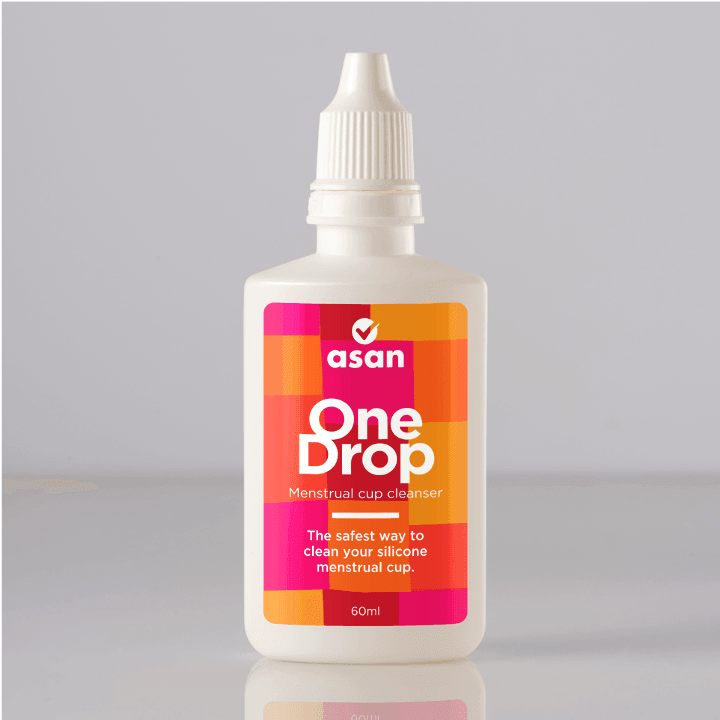
OneDrop Menstrual Cup Cleanser
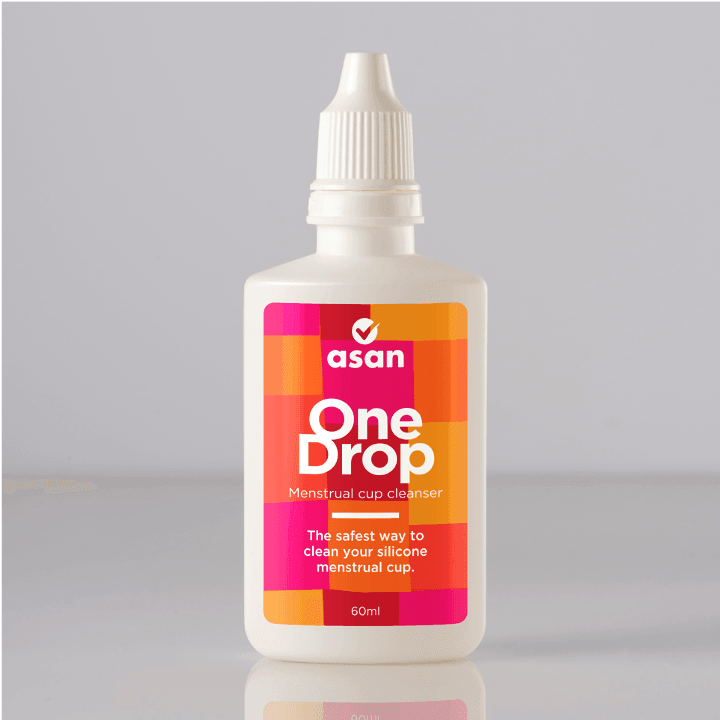

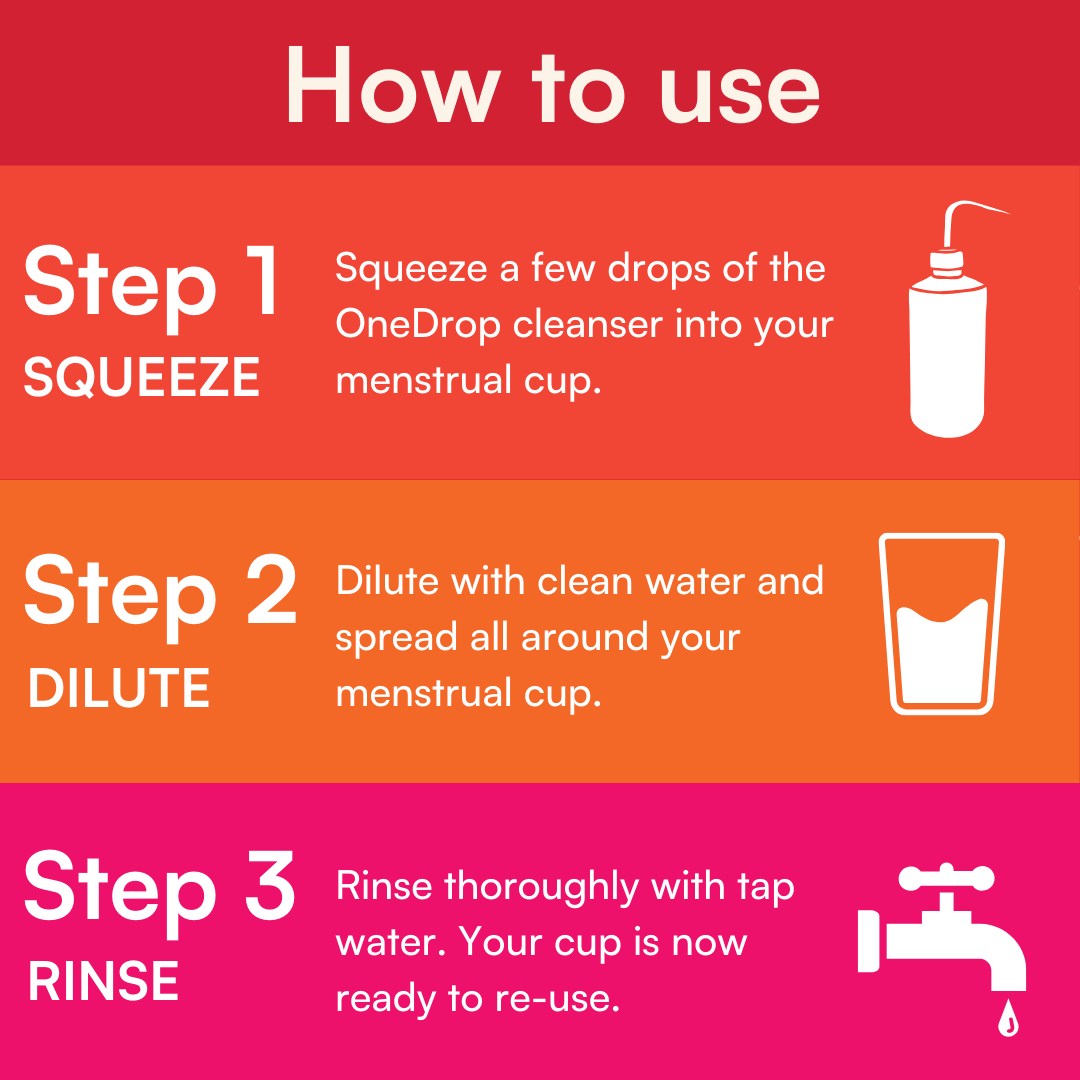

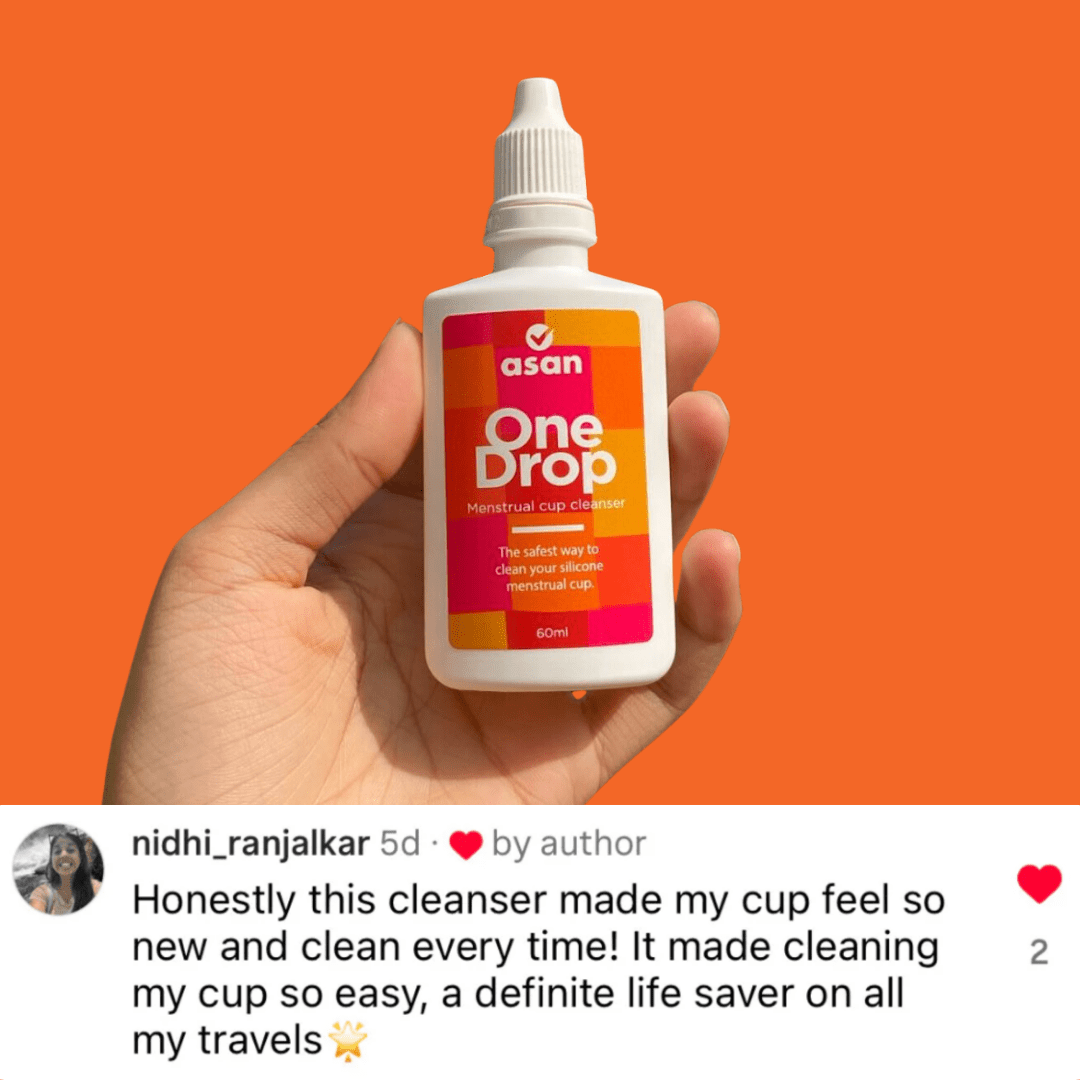

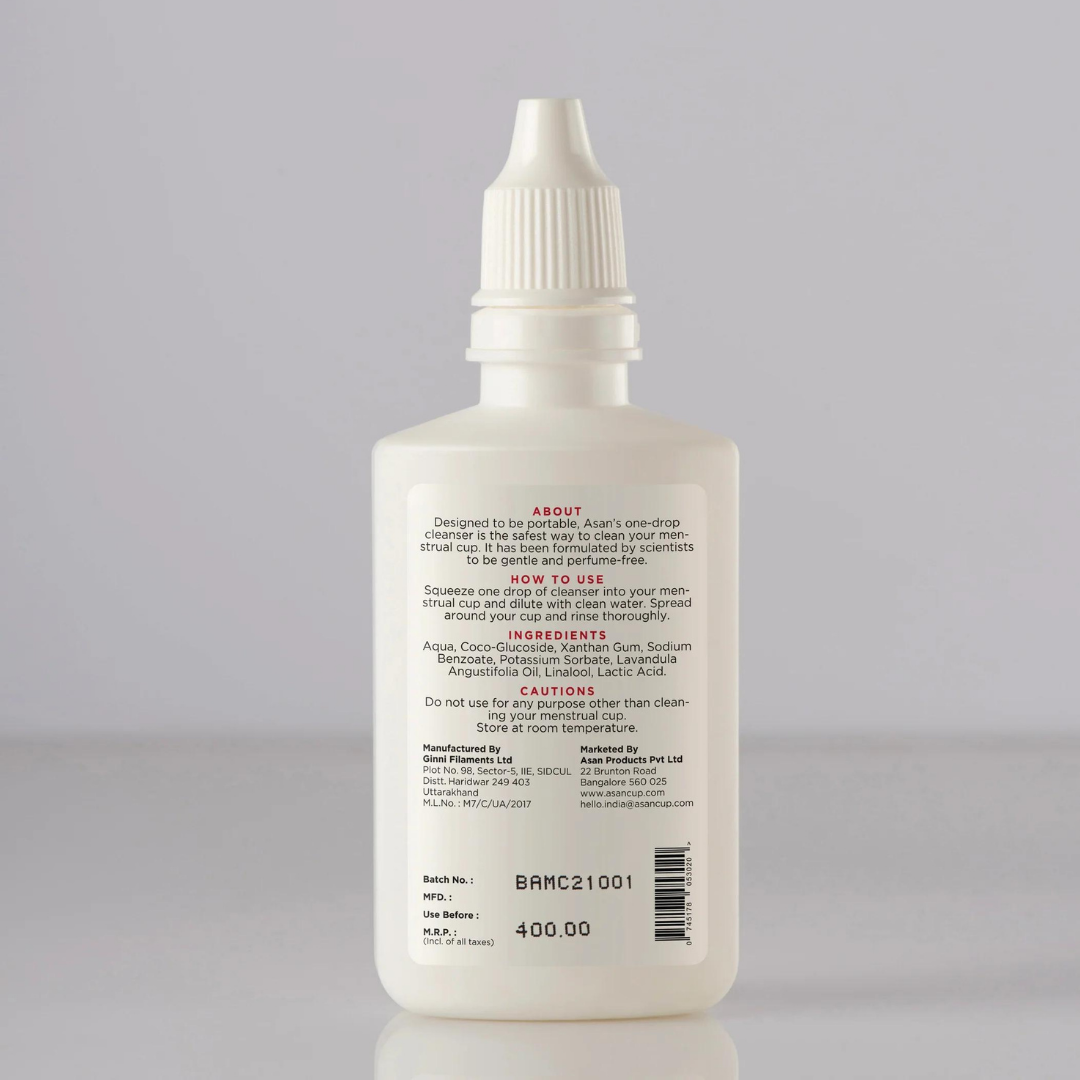
Frequently Asked Questions
What are the best menstrual cup cleaning techniques to prevent odour?
To keep your cup fresh, follow proper menstrual cup cleaning techniques.
This includes boiling your cup before and after your period, and rinsing it with tap water before reinserting it.
You can also use the Asan OneDrop cleanser to add that extra shine to your cup.
How do I prevent my menstrual cup from smelling over time?
To prevent your menstrual cup from smelling, always boil it for 10 minutes and let it dry completely before storing it in a cloth pouch.
Using a dedicated cleanser and following menstrual cup care instructions will also help eliminate menstrual cup odour.
How can I deodorize my menstrual cup naturally?
We don't recommend that you deodorize your menstrual cup naturally.
Can I use home remedies to get rid of menstrual cup odour?
We’ve heard many people talk about soaking your menstrual cup in tea tree oil, or rinsing your menstrual cup with lemon juice. However, we highly advise against this.
Can I soak my menstrual cup in hydrogen peroxide?
We don’t recommend this as any chemical can cause irritation on your body and harm the cups silicone.
Is a menstrual cup still safe to use if it has an odour?
Yes, a menstrual cup is still safe to use if it has an odour. However, persistent smells can be a sign of buildup, so it's important to follow proper menstrual cup cleaning techniques to keep it fresh and hygienic.
Can I use hand or body soap to clean my menstrual cup?
No, most hand and body soaps contain fragrances, oils, or harsh chemicals that can damage the silicone of your menstrual cup and cause irritation.
It's best to use a mild, perfume-free cleanser specifically designed for menstrual cups.
More Posts
View all-

Can you get your period if you’re pregnant?
Many people wonder if you can still get your period while pregnant. The short answer is no, but light bleeding or spotting can happen for other reasons. This blog breaks...
Can you get your period if you’re pregnant?
Many people wonder if you can still get your period while pregnant. The short answer is no, but light bleeding or spotting can happen for other reasons. This blog breaks...
-
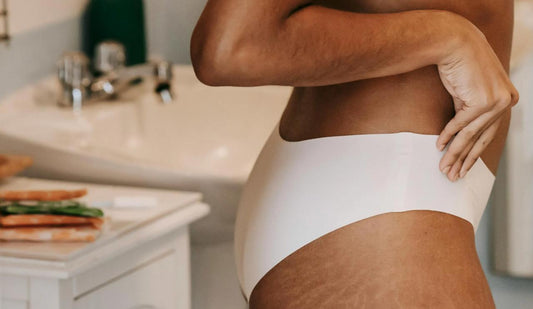
Top 5 features for period underwear
This guide breaks down the five most important features to look for including fabric, fit, and safety certifications, so you can find a pair that’s comfortable, leak-proof, and long-lasting.
Top 5 features for period underwear
This guide breaks down the five most important features to look for including fabric, fit, and safety certifications, so you can find a pair that’s comfortable, leak-proof, and long-lasting.
-
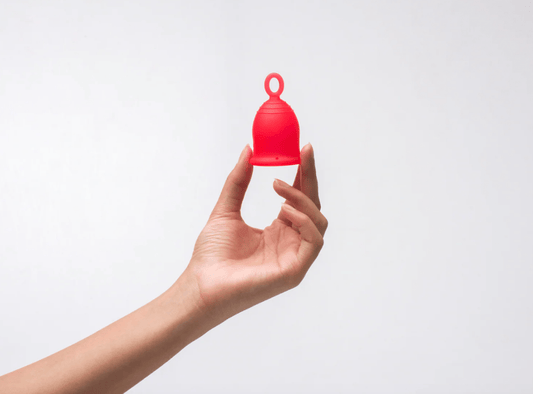
-
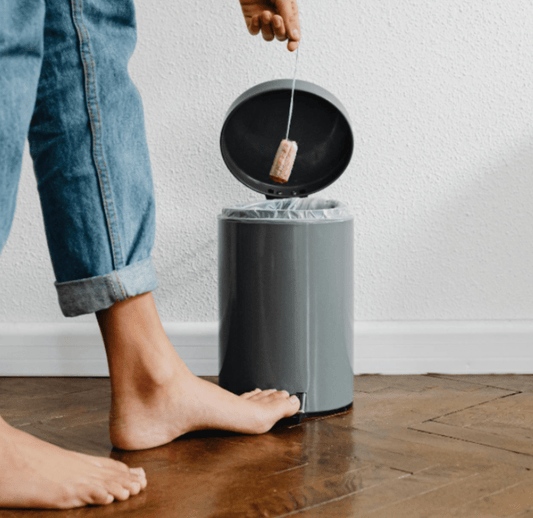
The hidden environmental cost of disposable period products
Understand the hidden environmental costs of single-use sanitary products.
The hidden environmental cost of disposable period products
Understand the hidden environmental costs of single-use sanitary products.
